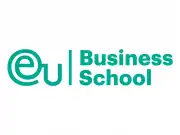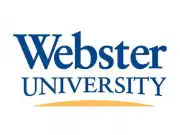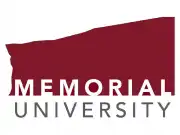Educational programs in linguistics
- Advantages of studying Linguistics
- Formats and levels of programs in Linguistics
- Top universities in Linguistics
- Additionally recommended universities in Linguistics
- How to apply for Linguistics programs
- Language of study and preparation for Linguistics programs
- Tuition fee for Linguistics programs
- Scholarships and grants for Linguistics programs
- Career prospects after studying Linguistics
- Is it worth getting an education in Linguistics
- Frequently asked questions

Certificate - Preparatory English Program
B.H.M.S - Business and Hotel Management School - Lucerne, SwitzerlandThe Program is provided at three different levels in order to ensure that students maximize their growth prior to beginning a full academic program.
The Preparatory English Program is an engaging class that emphasizes active learning in order to advance students' English speaking, listening,…

Certificate - English Foundation Program
EU Business SchoolThe English Foundation Program is not required to earn a degree from the European University. However, as an English-speaking institution, EU conducts all academic activities (including but not limited to lectures, exams, and written projects) in English. This customized curriculum will assist students…

Bachelor of Arts - Languages and Transcultural Studies (French)
Webster UniversityThe languages and transcultural studies program aims to prepare students for a multi-cultural and multi-ethnic global society.
We help students improve their intercultural communication, language skills, and self-confidence. It lets pupils compare their beliefs, customs, and viewpoints to…

Bachelor of Arts - Languages and Transcultural Studies (German)
Webster UniversityStudents will be better prepared for today's global world by studying languages and transcultural studies.
We assist students build international communication skills, language learning methodologies, and self-confidence to communicate with people from around the world.
It helps…

Bachelor of Arts - Languages and Transcultural Studies (Spanish)
Webster UniversityThe languages and transcultural studies program gives students the tools they need to succeed in a global, multi-cultural and multi-ethnic society.
Intercultural communication, language learning, and self-confidence help students become better global communicators. This helps pupils comprehend…

Bachelor - English Philology
University of Economics and Human Sciences in WarsawAny job requires multilingual and cross-cultural communication. Thus, language and communication expertise are highly valued.
Our English philology curriculum provides information, experience, and practical analytical and IT skills to guide and build your career as a translator, teacher, editor,…

Bachelor - German Philology
University of Economics and Human Sciences in WarsawThe European Union's economic center is Germany. German-speaking workers are in high demand from companies around the world. Every area of the job market, including for independent businesses, values knowledge and abilities in communication and language services.
In addition to teaching…

Bachelor of Arts - Russian
Memorial University of NewfoundlandRussian is one of the United Nations' five official languages and the native language of 142 million Russian Federation people.
The Russian major combines learning the Russian language with specialisation in many parts of Russian culture, literature, and contemporary topics pertinent to…

Bachelor of Arts - Spanish
Memorial University of NewfoundlandYou can communicate with approximately 500 million individuals worldwide if you speak Spanish. Spanish is one of the most important languages in our hemisphere's economy, politics, and culture. It is the second language of the United States and is gaining popularity in both established and rising…

Master of Arts - French Studies
Memorial University of NewfoundlandThe MA in French Studies focuses on the French language as well as francophone culture and literatures from around the world. Our programme emphasises literary history, criticism, and theory, which give an excellent foundation for completing French studies in a PhD programme at any prestigious university…
Advantages of studying Linguistics
Linguistics is the science of language: its structure, functioning, history, and role in society. Education in linguistics provides a deep understanding of the mechanics of language, the connection between language and thinking, as well as skills in intercultural communication and analytical work with texts.
Main advantages:
- Interdisciplinary nature: linguistics intersects with cognitive sciences, psycholinguistics, semantics, computational linguistics, translation, and cultural studies.
- Diversity of career paths: graduates work in translation and publishing, educational projects, corporations as specialists in linguistic analysis, and in IT.
- Demand in the digital era: the need for automatic translation, text analysis, and voice assistants creates demand for linguists, especially those with digital linguistics skills.
- Flexibility of work: you can work as a researcher, teacher, freelancer, consultant, in different countries and sectors.
- Intellectual development: studying languages, semiotics, and speech structure develops critical thinking, analytical skills, and linguistic literacy.
Formats and levels of programs in Linguistics
Programs in linguistics are available at different levels and in different formats:
- Bachelor’s (3–4 years) – fundamental disciplines: phonetics, morphology, syntax, semantics, sociolinguistics, introduction to linguistic analysis.
- Master’s (1–2 years) – deepening of specializations: applied linguistics, computational linguistics, translation studies, language and society research.
- Doctoral programs (PhD) – research projects and publications in linguistics.
- Preparatory programs (Language courses / Foundation / Pre-Master’s) – for those who need to improve language level or basic disciplines before starting the main program.
- Online and hybrid formats – often available in Master’s and diploma programs, especially in applied or digital linguistics.
- Certificates / micro-courses – short programs in topics such as corpus linguistics, machine translation, semantic analysis.
Top universities in Linguistics
Below are examples of leading universities known for their programs in linguistics:
| University name | Program name | Tuition fee for international students | Comment |
|---|---|---|---|
| Harvard University | Linguistics (BA / MA / PhD) | ~ 56 000 USD/year | One of the world leaders in research linguistics, strong faculty base. |
| University of California, Berkeley | Linguistics (BA / MA / PhD) | ~ 45 000 USD/year | Known for research in phonology, language typology, and language documentation. |
| University of Oxford | Linguistics, Philology & Phonetics | ~ 35 000 GBP/year | Traditional British school combining language and philology, high academic reputation. |
| University of Cambridge | Linguistics | ~ 32 000 GBP/year | Strong theoretical research, interdisciplinary projects. |
| University of Amsterdam | Linguistics | ~ 16 000 EUR/year | One of the best European centers of linguistics, focus on cross-linguistic comparison and applied projects. |
Additionally recommended universities in Linguistics
| University name | Program name | Tuition fee for international students | Comment |
|---|---|---|---|
| University of Wollongong in Dubai | Bachelor of Linguistics and Communication | 16 466 USD/year | The program combines linguistics and communication skills, oriented towards media and language technologies. |
| University of Stirling | MSc in Linguistics and Digital Communication with Pre-Master’s | 20 600 GBP | Combination of language theory, digital media, and communication. |
| University of Arizona | Bachelor of Linguistic Studies | 43 100 USD/year | Includes courses in sociolinguistics, neurolinguistics, and cross-linguistic analysis. |
| Yasar University | Bachelor of Linguistics and Translation Studies | 8 000 USD/year | Integration of linguistic disciplines with translation practice. |
| University of Europe for Applied Sciences (UE) | Master of Computational Linguistics & Language Technology | 10 938 EUR/year | Specialization in computational linguistics and automatic language analysis. |
How to apply for Linguistics programs
To apply for linguistics programs, the following steps should be taken:
- Choosing the university and specialization – determine your focus: theoretical linguistics, applied linguistics, computational linguistics, etc.
- Preparation of documents:
- Valid passport (usually at least 6 months after the start of studies)
- Diploma / school certificate + translation and notarization
- Academic transcript with grades
- Resume / portfolio (if you have research work)
- Motivation letter
- Recommendation letters
- Language tests: IELTS, TOEFL, or Duolingo (for programs in English)
- Additional exams / tasks: may include creative essays, language skill tests, interviews
- Submission of the application through the university website or centralized system
- Waiting for the decision and, once accepted, obtaining a student visa (if required)
It is recommended to start the process 6–9 months before the academic year begins to prepare tests and documents in time.
Language of study and preparation for Linguistics programs
Most programs in linguistics are taught in English. For those who do not yet have a sufficient level, universities offer preparatory courses (foundation, pre-master’s) focused on academic English and basic linguistic disciplines.
Some European universities provide tracks in the local language with a transition to English, especially in Master’s programs. Specializations in digital linguistics may also require programming and data skills.
Tuition fee for Linguistics programs
Approximate tuition fee:
- In the USA and the UK: 30 000–60 000 USD / GBP per year
- In continental Europe: 8 000–25 000 EUR
- In Asia and Australia: 20 000–40 000 USD / equivalent
Additional expenses:
- Accommodation: 600–1 500 in local currency per month
- Food: 300–600
- Study materials, equipment: 100–300
- Transport and insurance: 100–200
- Health insurance: 500–1 000 per year
Scholarships and grants for Linguistics programs
International students can apply for the following types of support:
- Academic scholarships – for high GPA, achievements in language competitions, publications
- Financial aid – based on family income
- Motivation and leadership scholarships – for participation in projects, volunteering, language initiatives
- University grants – internal programs for international students
- Assistant and research positions – work in a department, assistance in research projects
General examples (non-political): Academic Excellence Scholarship, International Merit Award, Graduate Research Fellowship, Teaching Assistant grant. Usually deadlines coincide with application deadlines – 3–6 months before the semester begins.
Career prospects after studying Linguistics
Areas of employment for graduates:
- Language technologies (NLP, machine translation, automatic text analysis)
- Translation and localization
- Teaching foreign languages and linguistics
- Editing, publishing, copywriting
- Research activities, discourse analysis
- Linguistic analysis in marketing, social media analytics
Companies and organizations hiring linguists: IT companies, language technology startups, publishing houses, educational projects, large tech firms with language processing and data analysis departments.
Internships, research projects, and participation in conferences are often part of the curriculum, helping students start their careers during studies.
Is it worth getting an education in Linguistics
Education in linguistics is an excellent choice for those who love language, culture, and research work. It combines theory and practice, opens doors to various fields: technology, translation, education, and communications.
Linguistics remains a demanded field, especially with the growth of digital language technologies. Studying abroad allows immersion into a language environment, access to high-level research, and expansion of international prospects.
Schools of linguistics are particularly strong in the USA, the UK, the Netherlands, and other countries with developed language science. A well-chosen university and support (scholarships) can make education in linguistics a very beneficial and promising investment.
Frequently asked questions
1. What skills are needed to enter linguistics programs?
Analytical abilities, language proficiency, interest in language structure, ability to work with text and data.
2. Is it possible to enter linguistics programs without knowing languages?
Often yes, but it is desirable to have at least one foreign language at a basic level and motivation to study language structures.
3. What is the minimum tuition fee for linguistics programs?
In Europe, approximately from 8 000 EUR per year; in the USA, minimum programs can cost ~ 30 000 USD; much depends on the country and university.
4. Where is it easier for international students to receive scholarships for linguistics programs?
Universities in Canada, Australia, the UK, and several European countries often offer internal grants and scholarships for international students in linguistics.
5. Can you work while studying in linguistics programs?
Yes, many countries allow part-time work. In addition, students can participate in departmental projects or perform paid research tasks, gaining experience and income.